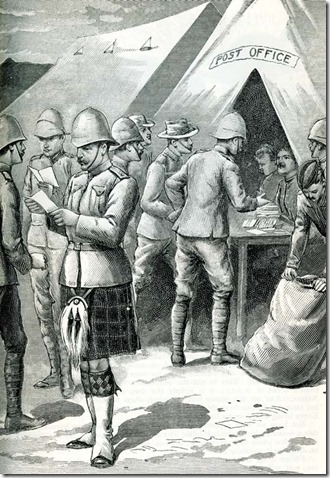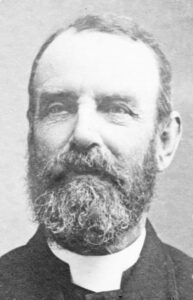In 1900 Aysgarth Parish Magazine continued to be published at the back of The Church Monthly during a year when the Boer War (Second African War 1899-1902) was frequently mentioned in the latter. The vicar of Aysgarth, the Rev Fenwick Stow, mirrored the “support the great British Empire” comments which would again be used between 1914 and 1918.
Mr Stow wrote that January: “It is many years since our country has entered on a New Year in the midst of a serious war, which is likely to tax all the efforts which our military authorities can put forth.”
Rev Stow told his parishioners that “the war is the outcome of a deliberate conspiracy to overthrow British Rule in South Africa.” He added that it was a duty to pray for the success of the British arms “not as though we thought ourselves the favourites of heaven, but because we believe that justice, freedom, humanity and civilisation, for which we are contending, are things which God desires upon earth.” He did also call for prayer for the sufferers on both sides of that war.
Above: “News from Home!” specially drawn for The Church Monthly by J Prater.
Much has changed since then and not least in Wensleydale. When the Rev Stow was vicar there were regular services in five Mission Rooms in his parish (at Bishopdale, Cross Lanes, Thornton Rust, West Burton and Walden) in addition to those at Aysgarth church on Sundays and Holy Days. Today the only Mission Room is at Thornton Rust where services are held once a month when there is no pandemic.
The community spirit at Thornton Rust does not seem to have changed even with the influx in recent years of those with no family roots in Wensleydale. In November 1900 the vicar noted following a harvest festival service at Thornton Rust: “The Mission Room has been recently re-coloured by E Lawson of Leyburn through the energy and liberality of the people of the village.” The community there continues to maintain it in very good condition.
Aysgarth church held a very successful Flower Festival in July 1900 when a large number of children brought bunches of beautiful flowers which, with gifts donated at the service, were sent once again to St Chad’s Home for Waifs and Strays. After the service in the church there was tea in the Vicarage garden (Stow House in Aysgarth) and then sports for the children.
In December the vicar and his family had their own waif to care for as he reported: “A stray dog has been kept at the Vicarage for some little time. The vicar will be glad if the owner will claim it.”
Also on his wish list was that he would be told quickly about weddings and funerals. He wrote: “The vicar wishes to be directly informed of the day on which it is desired that any marriage or burial should take place, in order that the hour may be fixed.” !
Life continued much as normal throughout the year for his parishioners. There were baptisms, marriages and deaths to be recorded, reports of the annual parish tea and Sunday School treat, admonitions to come forward for confirmation, the choir outing by train to Blackpool, missionary talks and how to sponsor a child at an orphanage in North India. The bicentenary of the Society for the Propagation of the Gospel in Foreign Parts had a special mention.
One sudden death the vicar especially noted, in March 1900, was that of the Rev C T Hales, the founder of Aysgarth School. Mr Hales started the school at Aysgarth near the church and then moved it to Newbiggin near Bedale. The vicar said: “He was a man of remarkable energy and incessant watchfulness over his boys and his influence over them was altogether good. He will be very much missed by a large circle of friends.”
Below: Rev Fenwick William Stow, vicar of Aysgarth 1873-1905
Material from The Church Monthly reproduced with the kind permission of Aysgarth Parochial Church Council.

